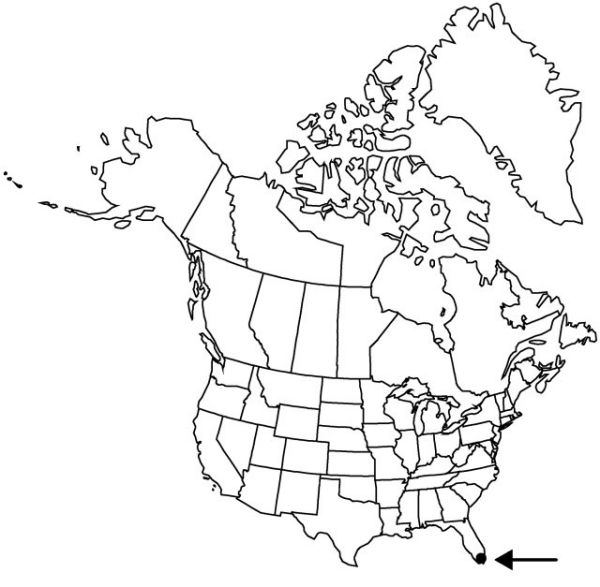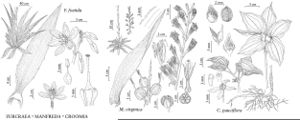Difference between revisions of "Furcraea foetida"
Syn. Pl. Succ., 73. 1812.
Basionym: Agave foetida Linnaeus
Synonyms: Furcraea gigantea Ventenat
FNA>Volume Importer |
FNA>Volume Importer |
||
| Line 29: | Line 29: | ||
|elevation=0 m | |elevation=0 m | ||
|distribution=Fla.;Central America;West Indies;widely introduced elsewhere. | |distribution=Fla.;Central America;West Indies;widely introduced elsewhere. | ||
| − | |discussion=<p>Specimens from Florida referred to in the literature as Furcraea cabuya Trelease with entire leaf margins (var. integra Trelease) probably belong here.</p> | + | |discussion=<p>Specimens from Florida referred to in the literature as <i>Furcraea</i> cabuya Trelease with entire leaf margins (var. integra Trelease) probably belong here.</p> |
|tables= | |tables= | ||
|references= | |references= | ||
| Line 54: | Line 54: | ||
|publication year=1812 | |publication year=1812 | ||
|special status= | |special status= | ||
| − | |source xml=https://jpend@bitbucket.org/aafc-mbb/fna-data-curation.git/src/ | + | |source xml=https://jpend@bitbucket.org/aafc-mbb/fna-data-curation.git/src/8f726806613d60c220dc4493de13607dd3150896/coarse_grained_fna_xml/V26/V26_967.xml |
|genus=Furcraea | |genus=Furcraea | ||
|species=Furcraea foetida | |species=Furcraea foetida | ||
Revision as of 17:48, 18 September 2019
Leaves lanceolate, to 2.4 m × 20 cm, thick, firm, smooth or striate; margins hard and smooth, usually entire at least in distal half. Flowers 4–5 cm; tepals greenish white, 2.3–3 cm; ovary 1.2–1.5 cm. 2n = 60.
Phenology: Flowering fall–mid winter.
Habitat: Old homesteads in disturbed areas
Elevation: 0 m
Distribution

Fla., Central America, West Indies, widely introduced elsewhere.
Discussion
Specimens from Florida referred to in the literature as Furcraea cabuya Trelease with entire leaf margins (var. integra Trelease) probably belong here.
Selected References
None.
Lower Taxa
None.
